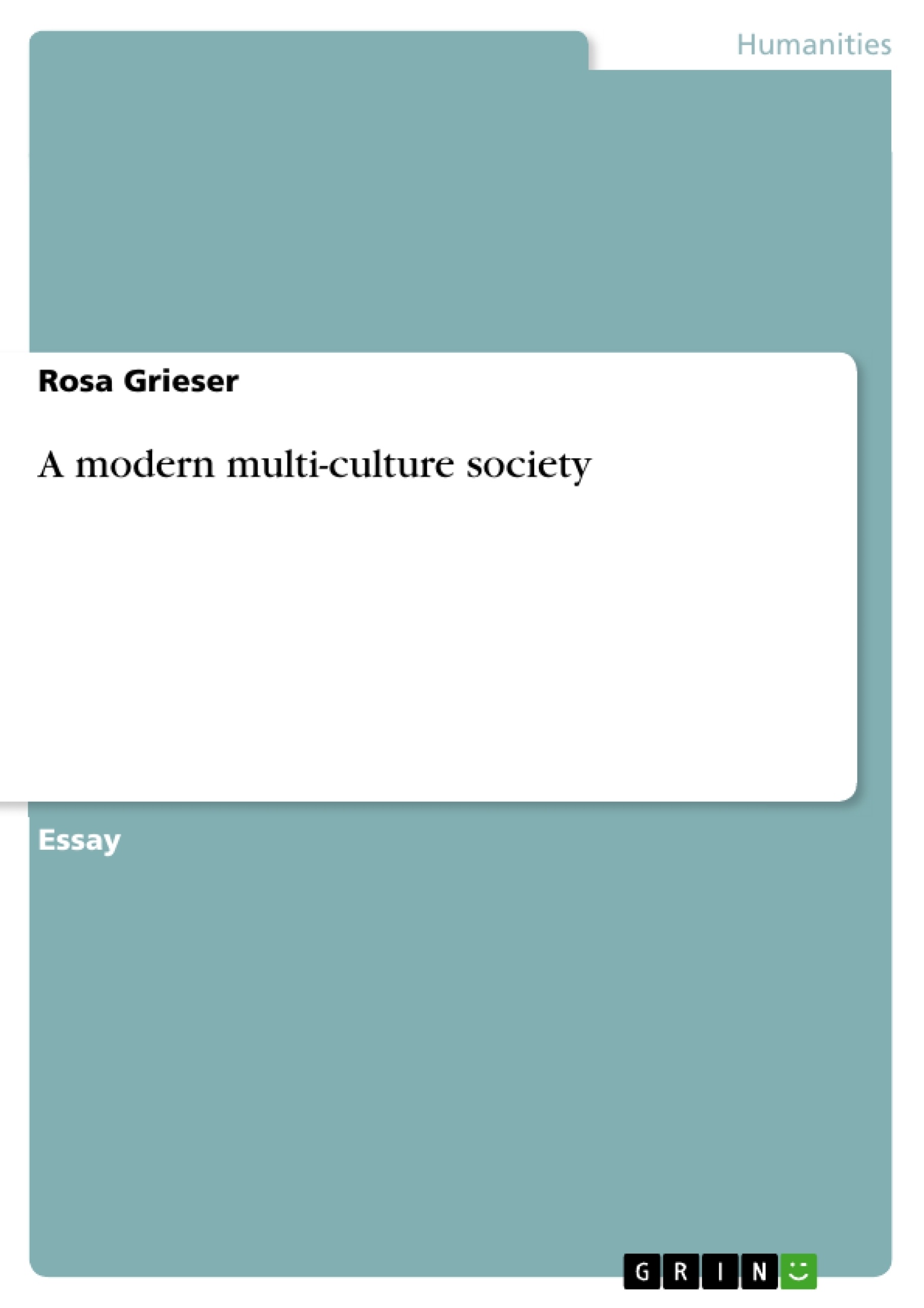Culture and society; two abstract and immaterial words, which we use in our everyday life to describe, who we are and how we live. But are we truly aware of what we sometimes say? Is there really something what we can call a scandal culture? Can something be wrong with society? What makes a society civilised? How does a culture change? How can we contribute to society? What makes a multi-cultural society multi-cultural and what has society actually to do with culture?
Sir Edward Burnett Tylor described culture 1871 as "…that complex whole which includes knowledge, belief, art, morals, law, custom, and any other capabilities and habits acquired by man as a member of society…"(Taylor 1871:1). Culture would be the foundation to the whole way of life of a society. Lifestyle would include religion, legal systems, language, values and principles. But does Sir Edward Burnett Taylor’s description of culture apply in the globalised world we’re living in today? Is everyone who shares the same belief, part of the same society? Can we speak different languages within one culture?
Table of Contents
- Culture and Society
- The Globalised World
- Society as a Collective Term
- Culture: A Semiotic Concept
- Culture and Meaning
- Culture as a Symbolic System
- Multi-Cultural Society
- Conclusion
Objectives and Key Themes
This text explores the complex relationship between culture and society, examining how they are intertwined and how this relationship manifests in a globalised world. The author analyzes various definitions and perspectives on culture and society, drawing from influential scholars like Sir Edward Burnett Tylor, Clifford Geertz, and Bradford J. Hall.- The evolution of the concepts of culture and society in a globalised world
- The relationship between culture, meaning, and symbolic systems
- The complexities of defining and understanding "culture" in a diverse and interconnected world
- The concept of "society" as a collective term encompassing diverse groups and shared experiences
- The characteristics and challenges of multi-cultural societies
Chapter Summaries
- The text begins by introducing the concepts of culture and society, highlighting their interconnectedness and the questions that arise when considering them in the context of a modern multi-cultural society. The author discusses the evolution of these concepts and explores various perspectives on their meaning.
- The second chapter delves into the complexities of applying traditional definitions of culture in a globalised world. It raises questions about the boundaries of culture and society in an increasingly interconnected world, considering issues of shared beliefs, language, and legal systems.
- The third chapter examines the concept of society as a collective term for various human groups defined by shared elements, including language, principles, norms, experiences, and institutions. It discusses different types of societies and how they are formed, highlighting the importance of shared customs and rules, even in the absence of explicit agreements.
- The fourth chapter focuses on Clifford Geertz's perspective on culture as a semiotic concept, emphasizing the importance of meaning and interpretation. Geertz’s view contrasts with traditional definitions of culture, suggesting that culture is not simply a collection of acquired habits and norms, but rather the shared meaning behind those symbols.
- The fifth chapter expands on the concept of culture as a symbolic system, highlighting the role of shared meanings in making our world comprehensible. The author explores how language, as a symbolic system, creates meaning and understanding within a shared cultural context.
- The sixth chapter explores the characteristics and challenges of multi-cultural societies, questioning how multiple cultures coexist and interact within a single social group. It highlights the shared experiences and common denominators that unite people from different cultural backgrounds within a single society.
Keywords
This text explores the concepts of culture and society in a globalized world, examining key themes like the evolution of these concepts, the role of meaning and interpretation in culture, the complexities of defining "culture" in a diverse and interconnected world, and the characteristics of multi-cultural societies. The text draws on the perspectives of influential scholars like Sir Edward Burnett Tylor, Clifford Geertz, and Bradford J. Hall, and explores the relationship between culture, meaning, and symbolic systems.Frequently Asked Questions
How did Edward Burnett Tylor define culture in 1871?
He described it as a complex whole including knowledge, belief, art, morals, law, and customs acquired by man as a member of society.
What is Clifford Geertz's perspective on culture?
Geertz views culture as a semiotic concept, focusing on the shared meanings and interpretations behind symbols rather than just habits.
What makes a multi-cultural society complex in a globalized world?
The challenge lies in how multiple cultures coexist and interact while sharing common denominators like legal systems and social institutions.
What is the relationship between language and culture in this text?
Language is explored as a symbolic system that creates meaning and understanding within a shared cultural context.
How does the text define "society" as a collective term?
Society is seen as a group of people defined by shared elements such as norms, experiences, and institutions, even without explicit agreements.
- Quote paper
- Rosa Grieser (Author), 2012, A modern multi-culture society, Munich, GRIN Verlag, https://www.grin.com/document/212408



